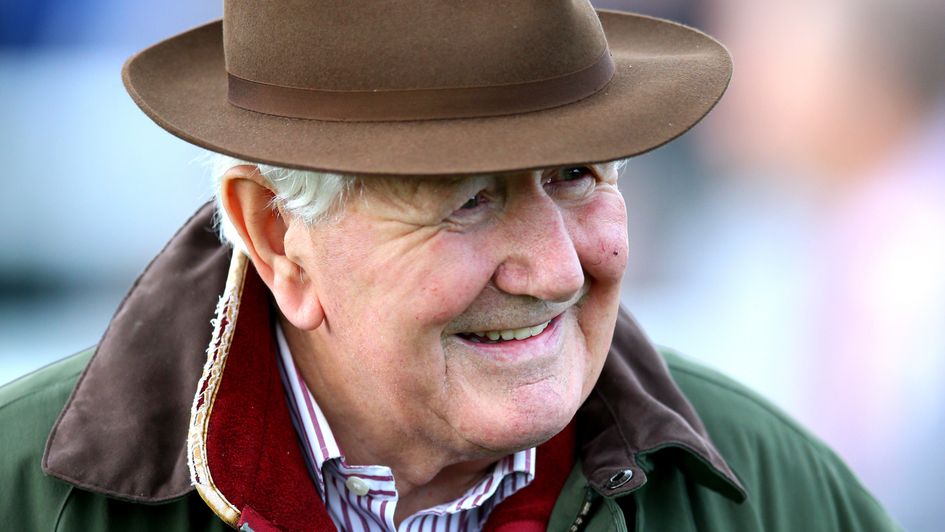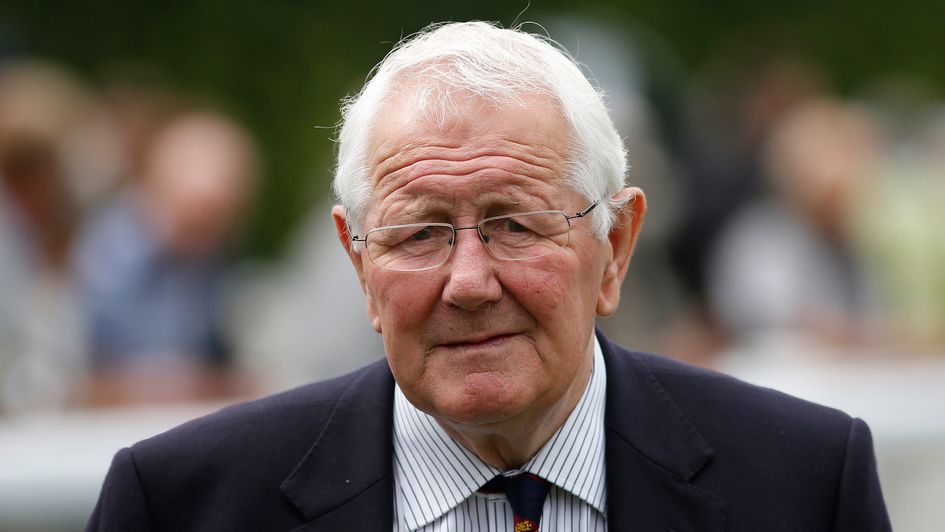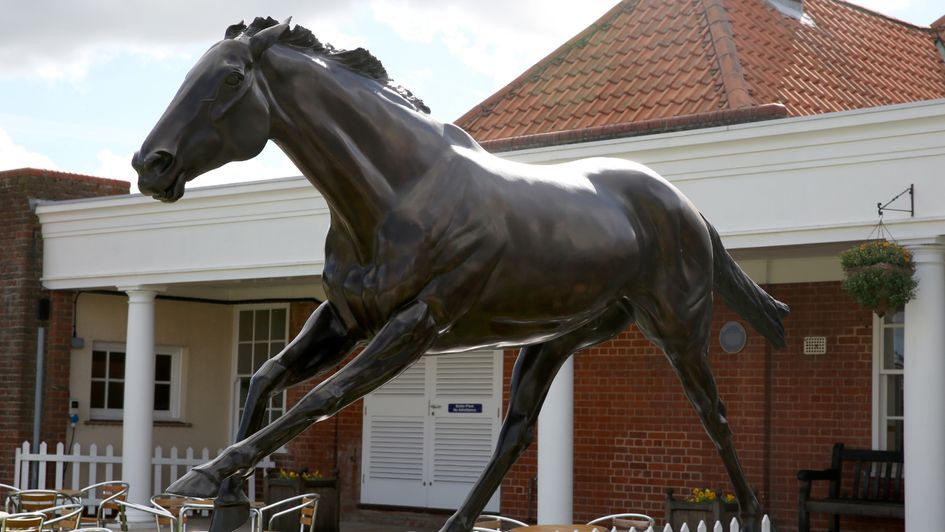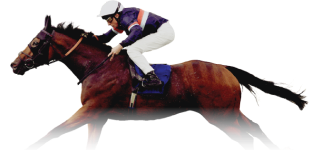Not just a one-horse trainer
"Everyone called me a one-horse trainer, but it never bothered me. I just used to laugh and say ‘yeah, but what a bloody good job I made of the one I had.’”
Ginger McCain never disputed the notion that his career was defined by one horse, Red Rum, whose exploit of winning the Grand National three times turned him into a household name. Only one horse since has truly achieved the same popularity and celebrity status with the wider public, so that the names of Desert Orchid and David Elsworth will be as inextricably linked as those of Red Rum and McCain.
But there’s a big difference. Elsworth was anything but a one-horse trainer, even though Desert Orchid provided him with many of the greatest moments of his training career and will be the horse with whom he’s most associated. For a start, Elsworth enjoyed success at the top level, not just with many different horses, but under both codes of the sport.
Even Desert Orchid himself made an easily overlooked cameo appearance on the Flat when contesting the 1985 Sagaro Stakes at Ascot. In fact, depending on your age, Elsworth conjures up very different images. One generation of racing fans, many of whom will have had their interest sparked by ‘Dessie’, grew up in the Desert Orchid era when much of the stable’s success came over jumps, but during the twenty-first century, by which time he became based in Newmarket, Elsworth concentrated largely, and then exclusively, on the Flat. His final winner over jumps came back in 2006 when Foodbroker Founder was successful over hurdles at Stratford.
The early days for Elsworth
Elsworth’s early training successes, when also still riding, were not under his own name but that of Lieutenant-Colonel ‘Ricky’ Vallance from whom he rented some boxes. The Wiltshire yard’s biggest successes came with Red Candle, winner of the 1972 Mackeson Gold Cup and the following season’s Hennessy Gold Cup which he won in a thrilling finish from none other than Red Rum.
However, Vallance’s licence was suspended after the Jockey Club took a dim view of the sudden improvement in form of one of the stable’s winners. Elsworth’s plans to train in his own right therefore had to be put in hold for a time but he was finally granted his own licence in 1978 and not long afterwards moved to Whitsbury in Hampshire where his career began to take off. Elsworth would later have his own name on the Hennessy Gold Cup when Ghofar won it in 1989.
In 1980, Elsworth had his first winner at the Cheltenham Festival when Heighlin, whom he’d bought off the Flat the previous autumn for 14,000 guineas with the objective of winning the Triumph Hurdle, did exactly that at odds of 40/1. A good early example of his trainer’s prowess under both codes, Heighlin also provided Elsworth with his first Royal Ascot winner later that year when successful in the Ascot Stakes and two years later Heighlin won the Goodwood Cup. But it was his Cheltenham victory which caught the eye of Desert Orchid’s owner Richard Burridge and played an important part in his decision to send the then unraced gelding to Elsworth.
The great Desert Orchid
Good enough over the smaller obstacles to contest two Champion Hurdles, Desert Orchid gained the majority of his 34 career victories over fences in a career which spanned ten seasons. During that time, he earned what was then record first-prize money for a jumper of £542,629 and, at the end of the 1989/90 season, achieved a Timeform rating over fences of 187, the highest since the legendary trio of Arkle, Flyingbolt and Mill House in the ‘sixties. In his final Timeform essay in Chasers & Hurdlers, Desert Orchid was described as ‘tough, versatile, courageous and durable, and a joy to watch, and no horse has ever more richly deserved a place among the immortals of the turf.’
Long regarded purely as a two-miler, Desert Orchid was a revelation on his first try over three miles when making all to win the King George VI Chase at Kempton in the 1986/87 season and it became the race he made his own, winning it again on three more occasions. That wasn’t the limit of his stamina, either, as he proved when winning a grueling edition of the Cheltenham Gold Cup in 1989. By then he had already won a Whitbread Gold Cup, and he added another big staying handicap to his record when carrying 12-0 to victory in the Irish Grand National in 1990.
A champion in the NH game
In 1987/88, Elsworth became champion jumps trainer (with just 24 horses!) for the only time in his career. Dessie won the Chivas Regal Cup Chase at Aintree prior to his Whitbread victory, while Cavvies Clown finished runner-up in the Gold Cup, but the highlight of that season came from Rhyme ‘N’ Reason’s remarkable Grand National victory after he’d slithered on his belly to a virtual standstill at Becher’s on the first circuit.
The best chaser that Elsworth trained, barring Desert Orchid, was another of his contemporaries Barnbrook Again (rated 174 at his peak) who had finished third in a Champion Hurdle and went on to win consecutive editions of the Queen Mother Champion Chase in 1989 and 1990. He also completed a one-two for Elsworth when chasing home Desert Orchid in the 1989 King George.
Elsworth won a total of nine races at the Cheltenham Festival, with Oh So Risky becoming his second Triumph Hurdle winner in 1991 before twice finishing runner-up in the Champion Hurdle. He was also successful both on the Flat (including in a Group 3 in France) and over fences. Floyd was another of the stable’s Festival winners, in the County Hurdle, while his total of 16 wins over hurdles in a lengthy career also included the Imperial Cup, Bula Hurdle, two Fighting Fifths, two Kingwell Hurdles, the Long Walk and the Rendlesham.
Flat glory at the highest level
But it wasn’t all about the jumpers during this period of Elsworth’s career. Just months after Desert Orchid won the Gold Cup, Elsworth was successful at Royal Ascot with Indian Ridge in the King’s Stand Stakes – he’d won the Jersey Stakes at the same meeting two years earlier – and with Dead Certain in the Queen Mary Stakes, both ridden by Steve Cauthen. Dead Certain also won the Lowther and Cheveley Park later that season.
Cauthen also struck up a highly successful partnership at around this time with another good filly, the tough and versatile In The Groove, a high-class performer whose wins included the Irish 1000 Guineas, Juddmonte International and Champion Stakes at three and a fourth Group 1, the Coronation Cup, at four.
In general, Flat horses struggle to achieve the sort of popularity enjoyed by the likes of Desert Orchid over jumps, but the late ‘nineties saw the emergence of Persian Punch whose battling qualities in the top staying contests over a number of seasons made him another favourite with the racing public.
Successful in 20 of his 63 starts, those wins included three apiece in the Jockey Club Cup and Henry II Stakes and two in both the Goodwood Cup and Lonsdale Stakes. He also made eight consecutive appearances at Royal Ascot, twice finishing second in the Gold Cup. Incidentally, few trainers get to train one horse worthy of being immortalised in statue form but Elsworth can boast two, Desert Orchid at Kempton and Persian Punch at Newmarket.
Persian Punch’s owner Jeff Smith was one of Elsworth’s biggest supporters and among other good horses to represent them were the high-class but quirky Norse Dancer who made the frame in numerous top races, including the 2000 Guineas, Derby and King George, St Leger runner-up The Geezer and dual Lancashire Oaks winner Barshiba. The last-named became dam of Elsworth’s final Group 1 winner when her daughter Arabian Queen, at odds of 50/1, beat the odds-on Derby winner Golden Horn in the 2015 Juddmonte International, 25 years after In The Groove.
It was Barshiba’s half-brother Dash Of Spice who provided Elsworth’s 16th and final Royal Ascot winner when successful in the 2018 Duke of Edinburgh Stakes. Barshiba was also a Royal Ascot winner herself, in the Sandringham Handicap, and among Elsworth’s other notable winners at the Royal meeting over the years were Lear Spear, a former Cambridgeshire winner who beat Fantastic Light by a head to win the 1999 Prince of Wales’s Stakes, and Indian Creek who won the Hardwicke Stakes four years later.
More from Sporting Life
- Racecards
- Fast results
- Full results and free video replays
- Horse racing news
- Horse racing tips
- Horse racing features
- Download our free iOS and Android app
- Football and other sports tips
- Podcasts and video content
Safer gambling
We are committed in our support of safer gambling. Recommended bets are advised to over-18s and we strongly encourage readers to wager only what they can afford to lose.
If you are concerned about your gambling, please call the National Gambling Helpline / GamCare on 0808 8020 133.
Further support and information can be found at begambleaware.org and gamblingtherapy.org.












